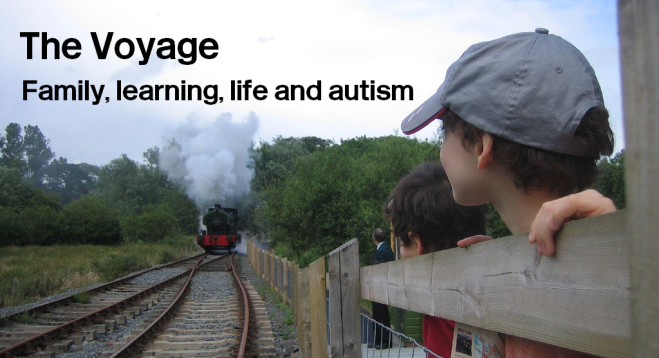I attended a relationships and sexuality education (RSE) training day in Belfast. It was free to attend and most of those attending today were teachers though parents accounted for a large portion of delegates also. As usual at these types of events, the trainer proceeded as though the idea that any of the delegates might themselves be autistic was utterly unthinkable.
I have researched RSE and autism in detail for both my postgraduate course and to equip my autistic son with the right information and skills. I also did some voluntary work for the NAS on an RSE program for autistic adults and completed a course on sexual health education. I wanted to attend today's training to see if I could pick up some more practical tips and ideas. I always gained something from any previous Middletown training even if it was on a topic I already had some knowledge of.
The trainer started off by defining and explaining autism using the pathology paradigm. I was concerned that she felt the need to spend some effort telling the teachers attending that autism is a real condition diagnosed only after careful observation and not an excuse for bad parenting or bold children. Are we really still at this point?
It quickly became clear that her speaking style was to make sweeping generalisations and to refer to autistic people as "they". She never said the word autistic once but used person-first language throughout despite the well-established preference of autistic people themselves for identity-first language. Jim Sinclair wrote about this in 1999- it's high time the message got through.
The day started with a quiz for delegates. One question asked, "how long can puberty last for a young person with autism?"
I'd written- same as for everyone else, around 4 years. When we went through the answers the trainer said that it can last longer for autistic people- even as late as 22.
I've never heard this before and a quick search hasn't turned anything up but I welcome any insight on this.
One slide said, "autism is not curable but treatable with interventions."
I disagree, it's neither curable nor treatable.
She said that "Asperger's is autism with high IQ."
Oh really?
She said that they have a visual learning style. (What all of *them*?)
She said that while *we* (non-autistics) learn by osmosis, "our [autistic] children do not pick things up."
She told a story about a boy who was upset while playing football and said it was because of theory of mind and that "he had no understanding that other people have differing opinions."
She said that if a child with autism goes to brush his teeth and there's no toothpaste left, he will stand still because they can't problem-solve.
She shared a slide of the ways in which most people learn about RSE. She said that autistic kids don't read magazines (unless it's Super Mario or similar) and they don't go to events like the school disco or weddings or naming ceremonies.
Oh really?
(And what about autistic girls, many of whom devour magazines aimed at teen girls?)
There was a video shown with 4 office workers in a canteen. One woman is crying as she's just split from her boyfriend while the other woman makes sympathetic comments. The sad woman asked "why did he dump me" and the autistic character pipes up that maybe he thought she was ugly. Silly literal autistic man- that got a big laugh. I sneered- I've seen this sniggering at autistic characteristics before and it's unacceptable.
She said that "children with autism" don't like it when people look through their school bags for notes or whatever but they lack the skills to say stop.
THEN TEACH THEM!!
At one stage she asked us to call out what we think RSE for children with autism should contain.
I said, "how to say no."
She quoted Wenn Lawson and told the group that Wenn is now gender-neutral and repeatedly referred to him as she.
She said that girls internalise behaviours and symptoms but boys externalise.
She said that you should keep electronic devices out of children's bedrooms at night due to "neurons coming off the phone." I hope I misheard- but dear lord!
At this stage, I made up my mind to leave at the lunch break. I had not gained anything from this except how not to provide RSE for autism training.
There was some useful information shared that could help parents and teachers. She talked about the importance of respecting the values of the family and emphasised that the parent is the main teacher. She talked about emotions, safety, respect, and starting this process early. She talked about the need to be aware of sensory issues. I'm sure there was more useful and well-informed information provided in the 2nd part of the training that I missed.
However, I will be writing to the training provider about the issues outlined above.
